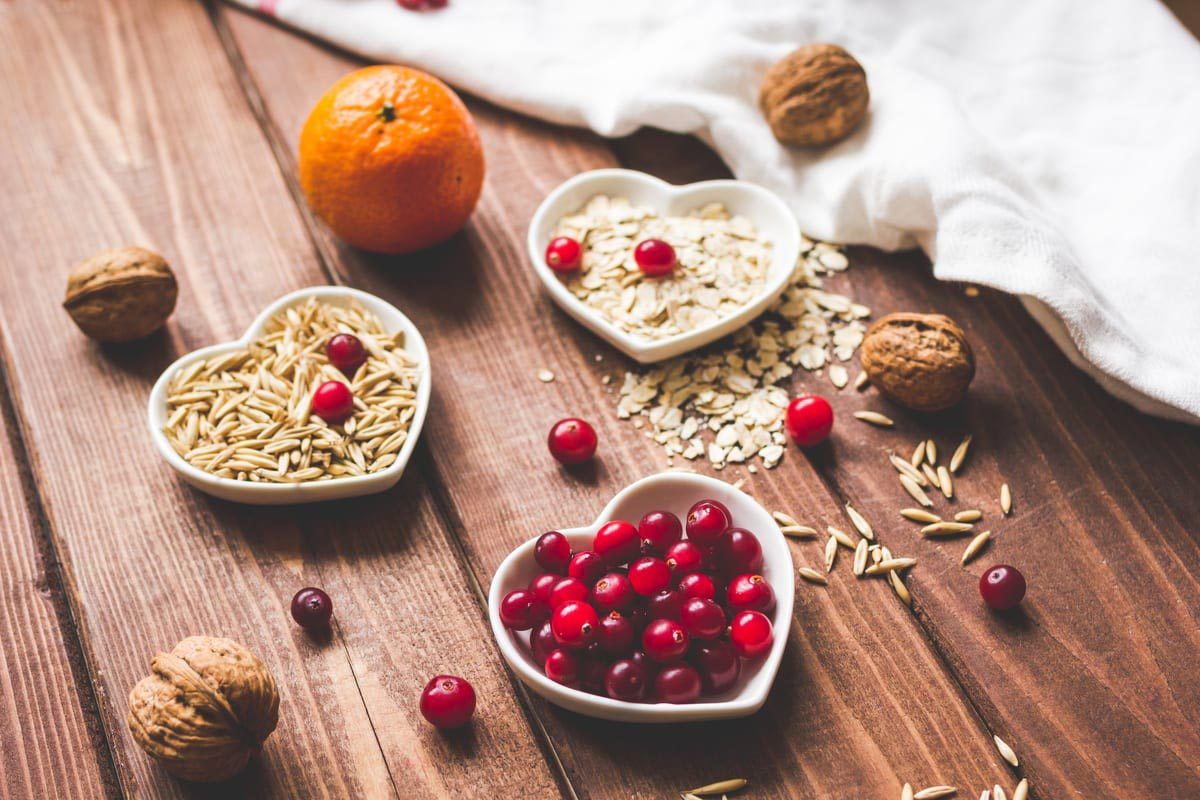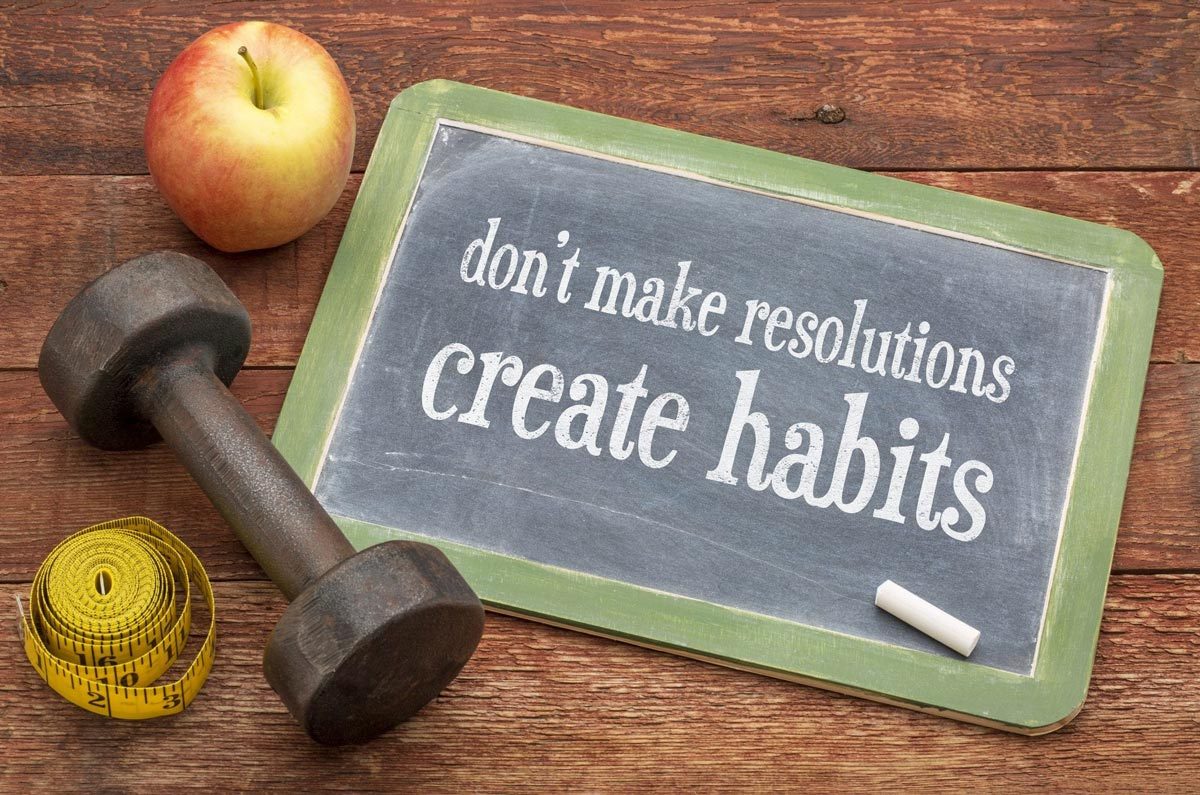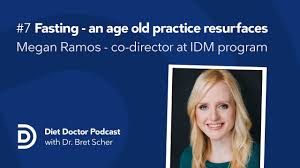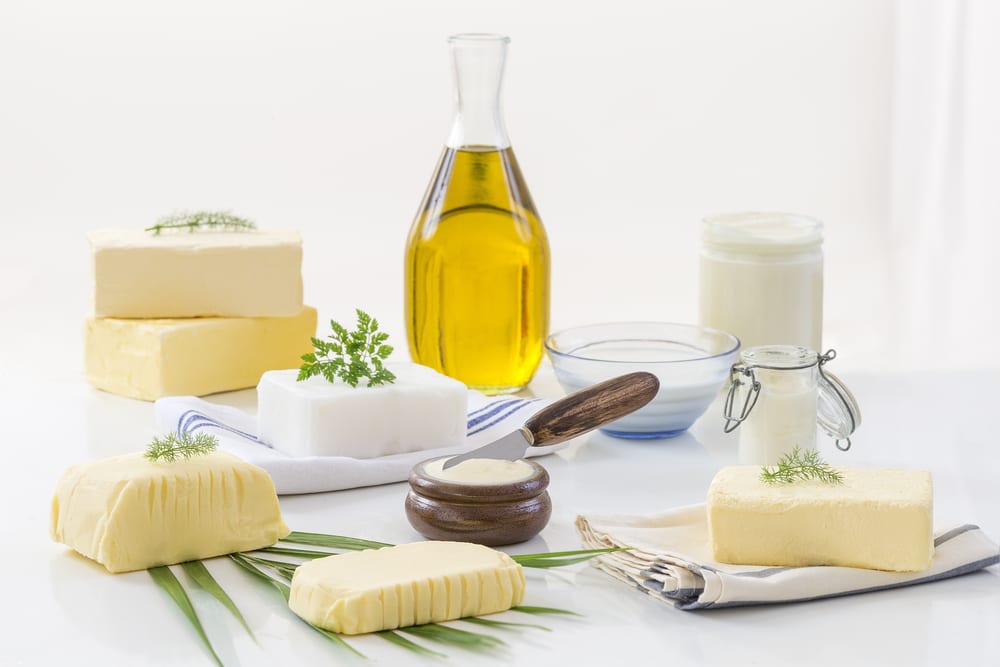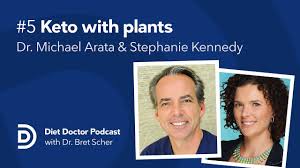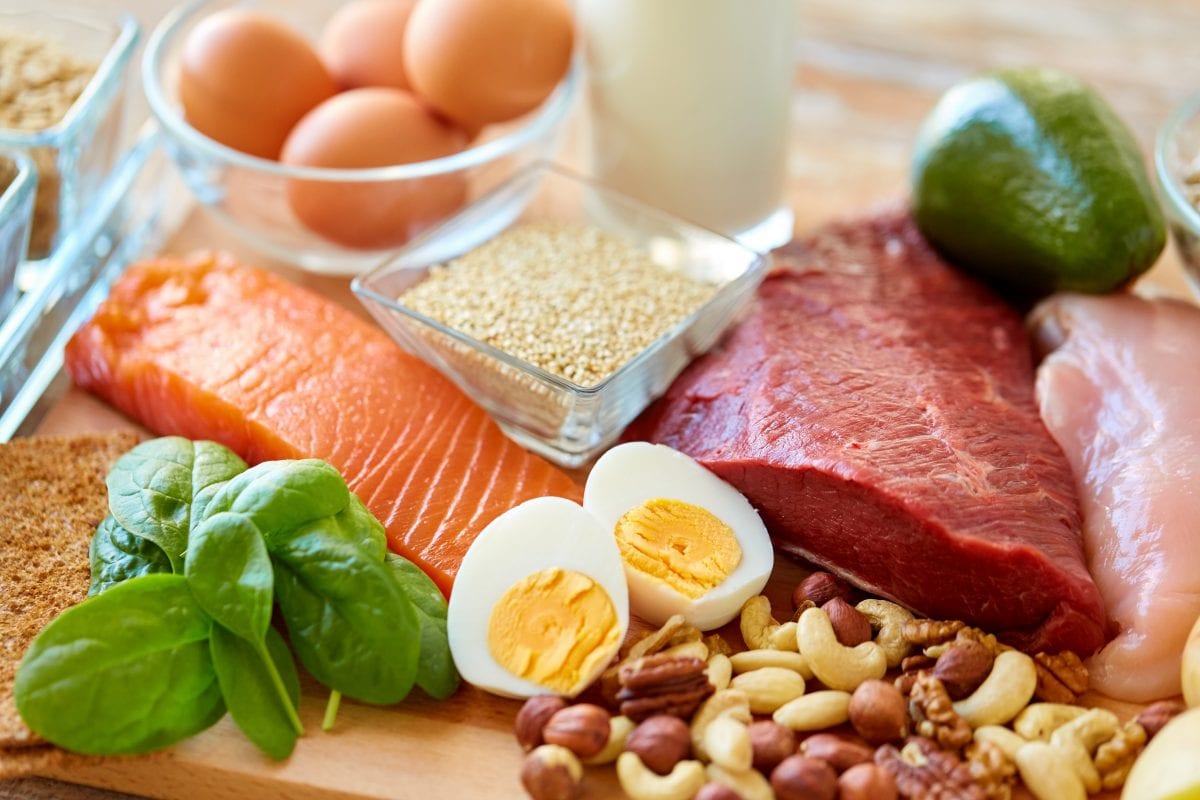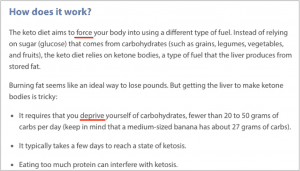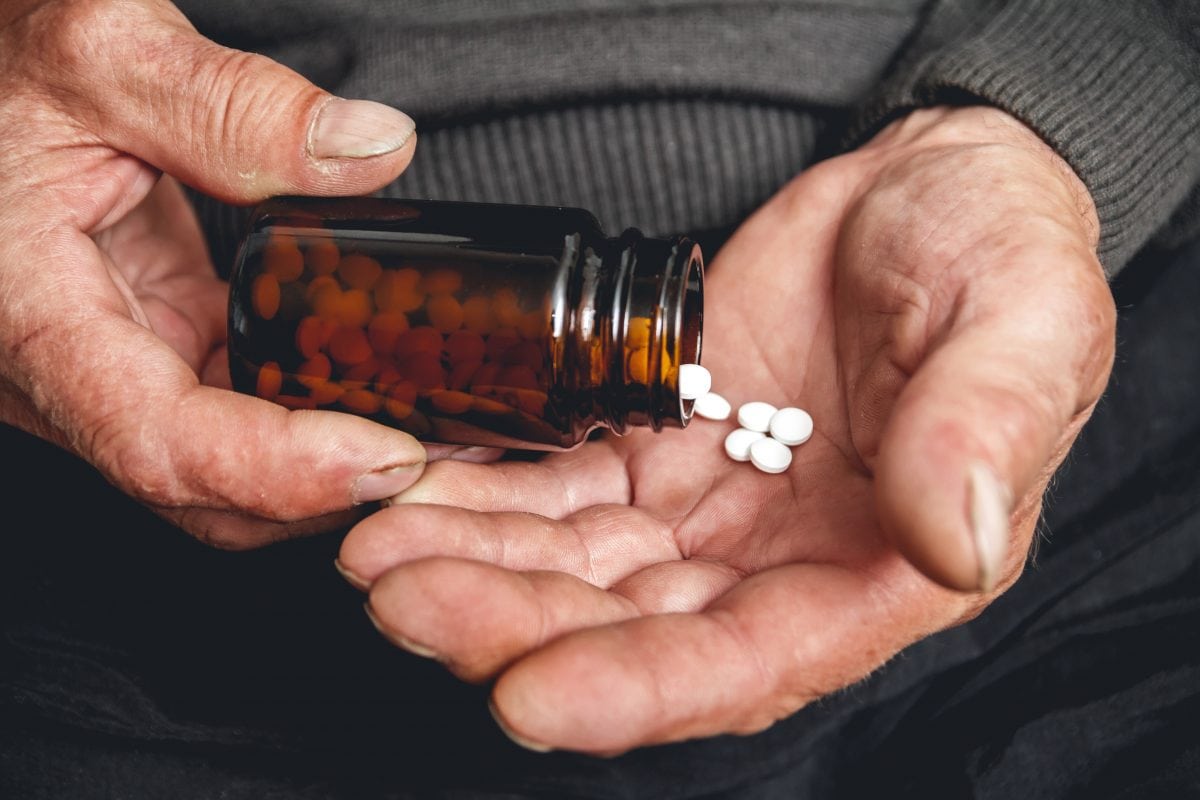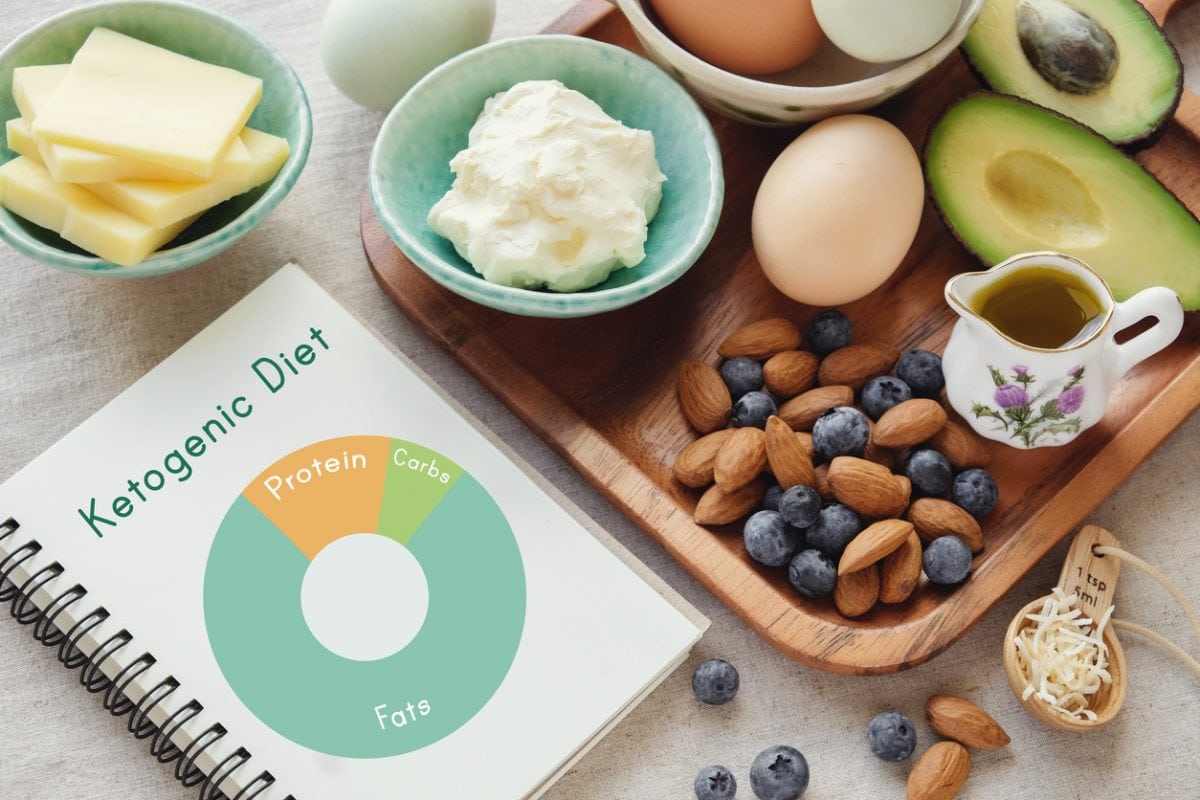Let's be honest. Changing our eating habits is hard. No matter how inspired and gung-ho we may feel when we first decide to go keto, inevitably, we will face temptations and frustrations. Whether you're brand new to the low carb or ketogenic diet or you've been following it for ages, adopting a meal prep habit can help traslate that initial enthusiasm into success. It can even save time and money along the way!
What is Meal Prep?
Meal prep is the practice of preparing a number of meals in advance, typically all at once on one day per week. I enjoy doing this on Sunday and trying to involve my kids as well! You can be flexible with this to fit your schedule. For instance, you can prepare and freeze an entire week of food, or make only certain meals or plan for only a few days at a time.
Why Meal Prep?
It saves you time.
The more you prepare in advance, the less time you spend running to the grocery store, and my personal favorite, less day to day clean up! While yes, you prepare about the same amount of food, efficient meal prep typically relies on multitasking to significantly speed up the process.
It cuts your food bill, sometimes drastically.
Meal prep can save you a lot of money on food. How? Consider that the average U.S. consumer will dish out $5,400 on impulse purchases each year. Having a grocery list and sticking to it can dramatically decrease the likelihood that you will give into these types of impulse purchases. (anyone can make a list, but can you stick to the list? Seinfield reference anyone???) Also, preparing a week's worth of food at once makes it easier to buy in bulk, which is often more cost-effective. You'll also find it a lot easier to form your shopping list around sales when you're forced to plan in advance.
It helps you avoid impulse decisions about food.
When you're busy, it's very easy to give into carb-laden fast food temptations. When you're drained after a long day of work, you may think, Whi has time of energy to make dinner? That can lead to less healthy take out choices. Meal prepping helps you avoid this kind of impulsive decision because you'll always have a healthy meal ready for you at home. Just walk in the door, heat it up and viola, dinner is served.
It can facilitate your keto diet.
Since staying in ketosis depends on a certain percentage of macros each day, a meal plan can be invaluable. By planning your meals in advance, you can be certain that you won't get to the end of the day and realize you've gone way over your carb allotment. Meal prep makes it even easier to stick to your meal plan because you can reuse the same base components in multiple meals, making the macro calculations much easier. You're also less likely to deviate from a meal plan when the food is already in your fridge, ready to eat.
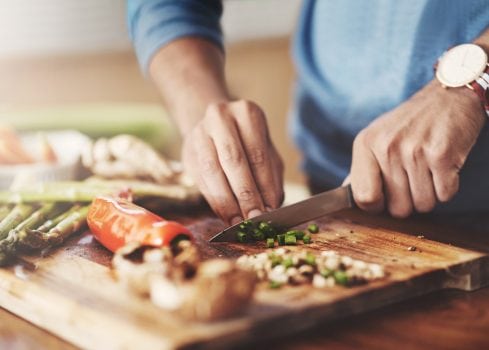
How to Start Meal Prepping
Getting Started
As with any lifestyle change, when you first start out with meal prep, it's important that you start slowly so that you don't overwhelm yourself. You don't need to prepare an elaborate menu with a different entreé each night. Instead, try the following steps to get acclimated to the habit.
-
Start by picking two keto-friendly protein options that use different cooking methods. For instance, if one requires the oven, pick something that you can prepare stovetop for the other recipe. You may also pick a side dish or two if you'd like.
-
Buy enough ingredients to make at least 3 servings of each recipe. You might also consider buying some extra meat and vegetables that you can prepare early and use throughout the week for lunches (think salads and lettuce wraps).
-
Set aside enough containers to hold your meals for the week. You'll likely want to pre-portion the meals to keep your macros consistent, so you'll need one container per individual meal (Tip: glass is much better than plastic).
-
On your chosen meal prep day, Sunday in my house, prepare your recipes. Be sure to prep your ingredients all at once and find ways to complete multiple tasks simultaneously. While your chicken is in the oven, for instance, you can be steaming or stir-frying some veggies.
-
Cook any extra meat and vegetables as well, if you chose to purchase some. A slow cooker can be extremely useful here to free up your other kitchen appliances for your main recipes.
-
Once you've finished cooking, portion out the meals into their containers. Consider freezing half of the meals to prevent any issues with spoilage. Put the extras into larger containers to portion out as snacks or side dishes.
Refining Your Routine
Throughout the first week, pay attention to the following questions:
-
Did I prepare the right amount of food? If you don't eat all the meals, consider cutting back. If you run out early or don't feel like you've saved yourself any time, consider preparing extra next time.
-
Am I bored with these meal options? If so, next time try preparing slightly different variations on the same recipe or add another entreé entirely.
-
Did meal prepping benefit me this week? Think in any terms you want: time, money, healthy decisions, etc.
It will take some trial and error to determine how often to meal prep and how much to prepare each time. Experiment with different schedules and menus until you are completely satisfied with the answers to these questions.
Keto-Specific Meal Prep Tips
Making meal prep work for any diet is all about planning, and keto is no different. The key is to prepare foods that will help you comply with the diet.
Add variety.
One of the main objections to meal prepping is that people don't want to eat the same meal over and over throughout the week. People who aren't following keto will often use a different carb with each meal to change things up. This isn't possible when following keto, unless you use alternatives such as spiralized or riced vegetables. If variety is important to you, consider one of the following ideas that take less time than adding a whole extra recipe to your prep day.
-
Prepare the same marinade, sauce, or seasoning, but use it on different proteins.
-
Stir-fry different combinations of vegetables with the same sauce or spices.
-
Portion your protein, vegetables, or both into sections and season each differently before baking or frying.
Don't skimp on snacks.
Pre-portioning keto-friendly snacks during your meal prep time can help ensure that you always have healthy options to keep you from dipping into the office candy jar, or in my case, snacking on the muffins and doughnuts in the doctor's lounge (I know that's absurd, but that is what they serve in the hospital!).
Label your food containers.
You should always label your food containers with the dish and date it was prepared. It's also helpful if you're following keto to mark the net carbs and other relevant macros in case you end up mixing and matching your recipes you can still stay on point.
With these tips, you should be well on your way to an efficient and effective meal prep routine. Once you see how much easier it is to follow the ketogenic diet with meal prep, you'll never go back.

